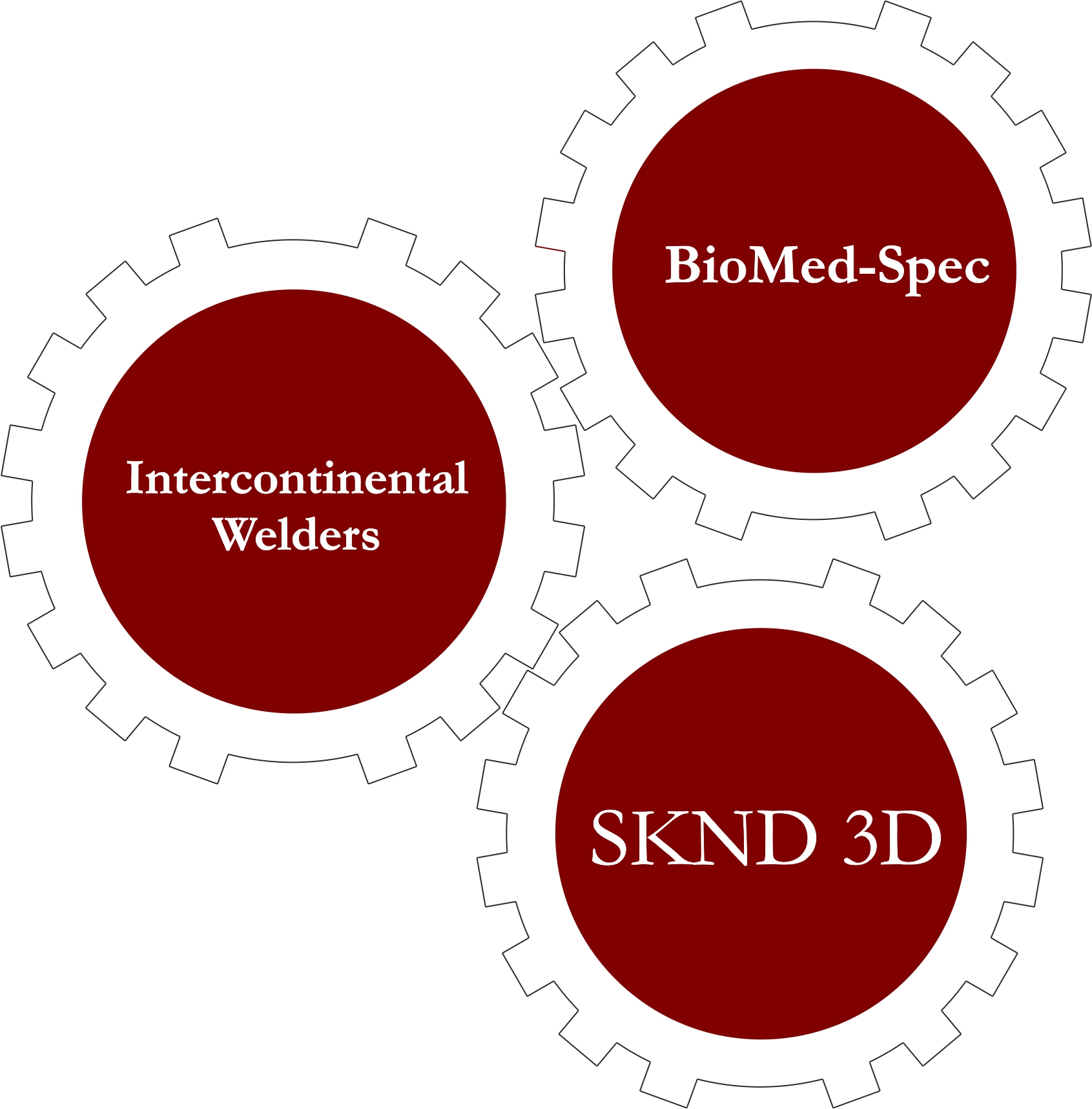Program studiów materiały i technologie przyszłości
Materiały i technologie przyszłości to kierunek interdyscyplinarny obejmujący zagadnienia związane z wytwarzaniem oraz badaniem właściwości materiałów pod kątem ich zastosowań w takich gałęziach przemysłu jak motoryzacja, lotnictwo, przemysł kosmiczny, energetyka czy rozwiązania na potrzeby medycyny i ochrony zdrowia. Program kierunku obejmuje również projektowanie procesów dostosowywania właściwości materiałów i rozwiązań technologicznych do określonych wymagań środowiskowych, eksploatacyjnych czy wytrzymałościowych.
Studia na kierunku materiały i technologie przyszłości pozwalają zdobywać wiedzę i nowe umiejętności przy wykorzystaniu metod projektowych, w ścisłej współpracy z otoczeniem biznesowo-przemysłowym. Studenci mają nie tylko ma możliwość stworzenia prototypu rozwiązania zadanego problemu, ale także prowadzą weryfikację jego funkcjonalności. Dzięki pracy projektowej rozwijają umiejętności twarde, a także niezwykle cenione przez pracodawców kompetencje miękkie – współdziałanie, współpracę w zespole, odpowiednią organizacja pracy, opracowywanie i prezentację uzyskanych wyników.
Program studiów obejmuje zagadnienia związane z najnowocześniejszymi technologiami wytwarzania materiałów, włączając technologie przyrostowe i druk 3D, syntezę nano- i biomateriałów czy technologie plazmowe oraz porusza aspekty związane z tematyką magazynowania energii i transportu przyszłości. Jest skonstruowany w ten sposób, aby pobudzić i rozwinąć kreatywność studenta do odkrywania nowatorskich podejść i zgłaszania własnych rozwiązań. Specjaliści w dziedzinie materiałów i technologii posiadają kompetencje, czyniące z nich poszukiwanych pracowników w różnych branżach przemysłu.
Więcej informacji na temat kierunku na stronie Rekrutacji PŁ
The Materials and Technologies field is a fascinating area at the Lodz University of Technology, focusing on the study of the structure, properties, and practical applications of various materials. It is a place where students acquire the knowledge and skills necessary to independently solve problems related to improving manufacturing technologies and shaping material functionality.
What does the program offer? Graduates of this program not only gain theoretical knowledge but also develop practical skills. They are prepared to conduct research, perform expertise on the causes of material degradation and wear, and possess the skills to manage material processing processes, improve them, and manage technological processes.
Opportunities for Development: Students in the Materials and Technologies program have the opportunity to develop in scientific research units and research and development centers. It is an excellent platform for deepening knowledge and gaining practical experience in the dynamically evolving field of materials engineering.
Material engineering is often, albeit wrongly, associated with textile materials. However, the science of materials is the most interdisciplinary field, basing its research methods on traditional physics and chemistry, but increasingly on methods derived from biology and information technology. This is reflected in the strategy referred to as MATERIOMICS.
It is worth noting that during the heated discussion about the ecological effects of producing modern materials, as well as their modification and further processing, biotechnological methods become an underestimated source of inspiration and environmentally friendly material technologies.
By observing natural production processes occurring in cells, materials science provides stimuli for research development in the relatively new area of material nanotechnology, taking into account quantum effects of biological processes, which presents an unknown challenge for a new generation of researchers.
Materials science allows us to examine our perception of the material world without distinguishing between living and non-living matter. The laws of physics and chemistry are the same for the entire material world, thus also determining the biological reality, which is incredibly rich and complex, making it an extremely interesting challenge for researchers.
Modern research in the field of materials science also utilizes information technology techniques and needs defined by health, life, and nutrition sciences, further deepening its interdisciplinary nature.
Materials science, incorporating biotechnology or closely cooperating with it, will develop extremely rapidly, comparable only to information technologies and life sciences. For these reasons, it is worthwhile to participate in work in the field of materials science.
Prof. Bogdan Walkowiak, PhD


